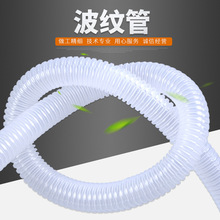Under massive public pressure—from his opponents, from his party, from the world—Trump has signed an executive order ending his own administration’s new policy of taking children away from their parents at the border.
This is a crucial juncture: Telling this story correctly will require enormous care. In abusive relationships, abusers know how grateful people feel when the suffering they’ve inflictedstops. This is a dynamic worth resisting, so here is where the words you choose matter: If you describe the moment when an abusive person stops as relentingor relievingor any variant that invokes mercy, you’re flattering the abuser, painting him as not just powerful but benevolent. Crediting him with defusinga situation he created positions him (as Brian Phillips points out) as the hero deactivating the bomb rather than the person who lit the fuse. If the point is to inform, then, this language fails to do so. Instead, try to use language that communicates exactly what happened. In this case, Trump tried out a policy that punished small children to gain political leverage, lied that it was not his, lied that he could not undo it himself, and then—facing worldwide condemnation—undid it.
The challenge here is that while Trump’s retraction isa concession to public outrage, it’s a superficial one. The facts: Rather than simplyceasing his own policy, he’s issued an order intended to undo federal protections that limit a child’s detention to 20 days—which is no sure thing. His order has made the situation more legally complicated, not less.
We have been trained to associate masculinity with power and strength, and to admire it, even when it’s damaging.How you tell that story to the public is up to you, but choose your verbs with care. They matter. The metaphors they activate frequently say more about your worldview than what you explicitly say. And the way they are deployed does more than make prose exciting to read. It betrays where the writer perceives power to reside.
AdvertisementI suspect more than a few headlines will fall into the trap of positioning Trump as either an agent of mercy or a neutral party in all this, because we are in a crisis of language. This is widely understood at this point, but journalists are still—still—falling into these traps, while imagining that they are acting in the name of objectivity. Take this extraordinary piece about Trump in the aftermath of the anticlimactic North Korea summit, in which Trump is verbing all over the place. The first sentencesays, “He assailed the ‘scum on top’ of the F.B.I. who were out to get him.” This makes Trump sound thrilling! He’s “reasserting himself on the Washington stage”! He “went on offense” in his “multifront war”! This makes the man out to be a hero maverick rebel—and an underdog to boot!
Advertisement Advertisement Advertisement AdvertisementHis mistakes, in contrast, are described in a deadening voice so passive that you barely notice they happened at all: “Mr. Trump’s rendition of the report by the Justice Department inspector general was selective.” Oh, it was selective? That’s … mildly confusing. And when the fact that he’s lied egregiously shows up at about the 10thparagraph, here’s how it’s phrased: “As he often does, Mr. Trump misstated or distorted a variety of facts, large and small … ” As he often doesmakes this sound customary, unremarkable, and the verbs selected here—misstateand distort—are so bland that even I, a person who feels rather strongly about public officials lying, can’t bring myself to care too much.
AdvertisementI have no doubt that the reporters who wrote that piece had every intention of doing the subject justice, but the trouble we have, as writers and humans, is that we are not objective. We are products of our environment, and ours happens to be one where misogyny is normalized and its converse—we might as well use androphilia—colonizes our thinking so much that we barely notice it. We have been trained to associate masculinity with power and strength, and to admire it, even when it’s damaging. (Hello, Tony Soprano.) At a subconscious level, we’re susceptible to construing even the unremarkable things men do as powerful, warlike, and entertainingly dominant. (For women, of course, this means even the remarkable things that they do can be seen as passive and ineffective.) Now, Trump lacks any of the “masculine virtues” androphilia supposedly values—a warrior physique, military experience, good strategic judgment, vigor, stamina—but that’s the point: This is a fake template of things we ascribe to people based on their gender. The fact that Trump is old, physically weak, and has never served, and that we’re ready to credit him with all those qualities anyway, proves how baseless these patterns of cultural worship really are.
Advertisement Advertisement AdvertisementThe point, for journalism, is that despite our best efforts at not editorializing by avoiding words like lie, we are editorializing all the timeanyway. We are all vulnerable to androphilia’s secret, universal appeal, and that results in real inaccuracy. Prose intended to neutrally describe should not come out as near-propaganda that his supporters could gleefully quote.
This is improving, but it’s still happening. “Trump Assails Critics of Immigration Policy” is the headline for this New York Times video of Trump’s speech Tuesday to the National Federation of Independent Business. Based on that title, you might expect footage of Trump confronting his critics and giving them what-for. Except, of course, that—as with his “ripping into” Mark Sanford—what he in fact did was bluster about people who weren’t there while surrounded by people who support him. Which is largely what he does. But the man who can’t even fire people face-to-face outside of reality TV—see: JamesComey—is getting credit for being confrontational and direct.
AdvertisementThis does damage. It burnishes his reputation as the strong man he wants to become, for one thing. And for another, it misrepresents what’s happening in America right now.
Advertisement AdvertisementAndrophilia is in the blood, but it’s a tendency we have to correct for. Here’s an example of a story that exercises restraint. The verbs are moderate. One subject doesn’t dominate the story. And when Stephen Miller’s words appear, they are closely followed by comments from others, making it feel like genuinely balanced.
The fantasy that journalism doesn’t editorialize is just that. Back when journalists were still trying to figure out how to account for Trump’s never-ending barrage of lies, there were several debates about the ethics of using the word lieto describe them. The camp against using the word argues that it’s a mistake to try to discern intention. But there’s no consistency to this policy. The first story I linked to—which takes care not to use the word lie—says that Trump “joked” when he praised Kim Jong-un. Discerning intention, whether you attempt it or not, cuts both ways. If you can’t do it for “lies,” you can’t do it for “jokes.”
Advertisement AdvertisementWe have biases along multiple axes. So far, the media has tried hard to correct for them, but mostly in one direction: his. So we must check ourselves—as journalists and as readers. If you encounter—or draft—a headline like “Trump Picks Economic Winners, Guided by Nostalgia,” realize that it sounds like it could be a campaign slogan. (The story is not about Trump’s unerring eye for choosing “winners,” but rather about him trying to make weak and dying industries intowinners by increasing tariffs.) Writing that headline is not a neutral act.
AdvertisementEven the natural inclination to sort reality into “winners” and “losers” powers androphilia. It erases the people these policies affect, for whom no conclusion can be that satisfying or simple. Part of what has made much of the reporting this week so powerful was that it centered the children and not the man using them. It made the news environment—if not the news itself—feel sane and focused.
Androphilia is just as sneaky as misogyny; we are not immune to it. So when we tell this story—the one where an incompetent, erratic president took babies and toddlers hostage in order to try to get his way—note that there is no reliefor reprievefrom the damage that has been done. Note that—if power is what matters here—the move was a moral and political disaster. But note that he’s not done.
Tweet Share Share Comment








